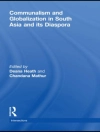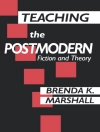This meticulously edited Walt Whitman collection is formatted for your e Reader with a functional and detailed table of contents:
Table of Contents:
Poetry:
Leaves of Grass (The Original 1855 Edition):
Song of Myself
A Song for Occupations
To Think of Time
The Sleepers
I Sing the Body Electric
Faces
Song of the Answerer
Europe the 72d and 73d Years of These States
A Boston Ballad
There Was a Child Went Forth
Who Learns My Lesson Complete
Great Are the Myths
Leaves of Grass (The Final Edition):
Inscriptions
Starting from Paumanok
Song of Myself
Children of Adam
Calamus
Salut au Monde!
Song of the Open Road
Crossing Brooklyn Ferry
Song of the Answerer
Our Old Feuillage
A Song of Joys
Song of the Broad-Axe
Song of the Exposition
Song of the Redwood-Tree
A Song for Occupations
A Song of the Rolling Earth
Birds of Passage
A Broadway Pageant
Sea-Drift
By the Roadside
Drum-Taps
Memories of President Lincoln
By Blue Ontario’s Shore
Autumn Rivulets
Proud Music of the Storm
Passage to India
Prayer of Columbus
The Sleepers
To Think of Time
Whispers of Heavenly Death
Thou Mother with Thy Equal Brood
From Noon to Starry Night
Songs of Parting
Sands at Seventy
Good-Bye My Fancy
Other Poems
Novels:
Franklin Evans
Life and Adventures of Jack Engle
Short Stories:
The Half-Breed
Bervance; or, Father and Son
The Tomb-Blossoms
The Last of the Sacred Army
The Child-Ghost
Reuben’s Last Wish
A Legend of Life and Love
The Angel of Tears
The Death of Wind-Foot
The Madman
Eris; A Spirit Record
My Boys and Girls
The Fireman’s Dream
The Little Sleighers
Shirval: A Tale of Jerusalem
Richard Parker’s Widow
Some Fact-Romances
The Shadow and the Light of a Young Man’s Soul
Other Works:
Manly Health and Training
Specimen Days
Collect
Notes Left Over
Pieces in Early Youth
November Boughs
Good-Bye My Fancy
Some Laggards Yet
Letters:
The Wound Dresser
The Letters of Anne Gilchrist and Walt Whitman
Om författaren
Walt Whitman (1819-1892) was an American poet, essayist, and journalist. A humanist, he was a part of the transition between transcendentalism and realism, incorporating both views in his works. Whitman is among the most influential poets in the American canon, often called the father of free verse. His work was controversial in its time, particularly his poetry collection Leaves of Grass. Whitman’s work breaks the boundaries of poetic form and is generally prose-like. He is often labeled as the father of free verse.












